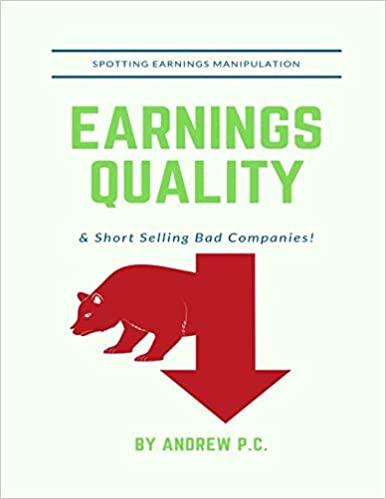Question 3 Besides running his own businesses, Tommy is also an avid stock investor and has a team of professional investment managers overseeing his stock portfolio. He's trying to determine the fair value of a stock using a simple dividend discount model. Information on the stock is as follows: Macchiato Ltd is a famous coffee retail chain, and its stock traded at $42 at the beginning of 2016. Its beta estimate by a beta service company is 1 and its market risk premium is 6%. The risk free rate at the end of 2015 was 1.6%. The firm was expected to pay dividends of $1.60 per share at the end of 2016 and 2017. CIR)-Rf (e) Macchiato Ltd traded at 4.5 times sales in 2015. It was reporting a net profit margin of its sales of 14 percent. What was its P/E ratio? (4 marks) Macchiato Ltd had 700,000 shares at the end of 2015. On January 23, 2016 it issued an additional 250,000 shares to the market at the market price of $42 per share. Assess the effect of this share issue on the price per share of the firm. (3 marks) On March 25, 2016, the directors of Macchiato Ltd decided to issue some new preferred stock. The issue will pay a $20 annual dividend per share, beginning 20 years from the date of issuance. If the market requires a 6% return on this investment, how should the preferred stock be priced on issuance? (4 marks) (h) It is sometimes assumed in a two-stage dividend growth model that dividend growth drops from a high rate in the first stage to a low perpetual growth rate in the second stage. Comment on the reasonableness of this assumption and discuss what happens if this assumption is violated. (4 marks) = Chegg Study Textbook Solutions Expert Q&A Market Risk Premium =Rm-Rf=6% Rm=Market Return Rs=1.6+1*6=7.6% Required Return of the stock=7.6% b.)If there is no dividend payment, Price expected at end of 2017 Number of years =2 Return expected =7.6%=0.076 Price at beginning of 2016=$42 Expected price at end 2017 =42*(1.076^2)=$48.63 c. If it pays dividend =$1.60 per share ; Dividend yield in 2016=16/42=0.0381 Capital gain =0.076-0.0381=0.0379 Price at end of 2016 =42*1.0379=$43.59 Dividend yield in 2017 -1.6/43.59=0.0367 Capital Gain =0.076-0.0367=0.0393 Expected Price at end of 2017=43.59*1.0393=$45.30 d.If dividend =$2.5 per share in perpetuity Required return=76%=0076 Expected Price -2.5/0.076=$32.89 VALUE LOST by buying share at $42=42132.89=$9.11 Question 3 Besides running his own businesses, Tommy is also an avid stock investor and has a team of professional investment managers overseeing his stock portfolio. He's trying to determine the fair value of a stock using a simple dividend discount model. Information on the stock is as follows: Macchiato Ltd is a famous coffee retail chain, and its stock traded at $42 at the beginning of 2016. Its beta estimate by a beta service company is 1 and its market risk premium is 6%. The risk free rate at the end of 2015 was 1.6%. The firm was expected to pay dividends of $1.60 per share at the end of 2016 and 2017. CIR)-Rf (e) Macchiato Ltd traded at 4.5 times sales in 2015. It was reporting a net profit margin of its sales of 14 percent. What was its P/E ratio? (4 marks) Macchiato Ltd had 700,000 shares at the end of 2015. On January 23, 2016 it issued an additional 250,000 shares to the market at the market price of $42 per share. Assess the effect of this share issue on the price per share of the firm. (3 marks) On March 25, 2016, the directors of Macchiato Ltd decided to issue some new preferred stock. The issue will pay a $20 annual dividend per share, beginning 20 years from the date of issuance. If the market requires a 6% return on this investment, how should the preferred stock be priced on issuance? (4 marks) (h) It is sometimes assumed in a two-stage dividend growth model that dividend growth drops from a high rate in the first stage to a low perpetual growth rate in the second stage. Comment on the reasonableness of this assumption and discuss what happens if this assumption is violated. (4 marks) = Chegg Study Textbook Solutions Expert Q&A Market Risk Premium =Rm-Rf=6% Rm=Market Return Rs=1.6+1*6=7.6% Required Return of the stock=7.6% b.)If there is no dividend payment, Price expected at end of 2017 Number of years =2 Return expected =7.6%=0.076 Price at beginning of 2016=$42 Expected price at end 2017 =42*(1.076^2)=$48.63 c. If it pays dividend =$1.60 per share ; Dividend yield in 2016=16/42=0.0381 Capital gain =0.076-0.0381=0.0379 Price at end of 2016 =42*1.0379=$43.59 Dividend yield in 2017 -1.6/43.59=0.0367 Capital Gain =0.076-0.0367=0.0393 Expected Price at end of 2017=43.59*1.0393=$45.30 d.If dividend =$2.5 per share in perpetuity Required return=76%=0076 Expected Price -2.5/0.076=$32.89 VALUE LOST by buying share at $42=42132.89=$9.11










